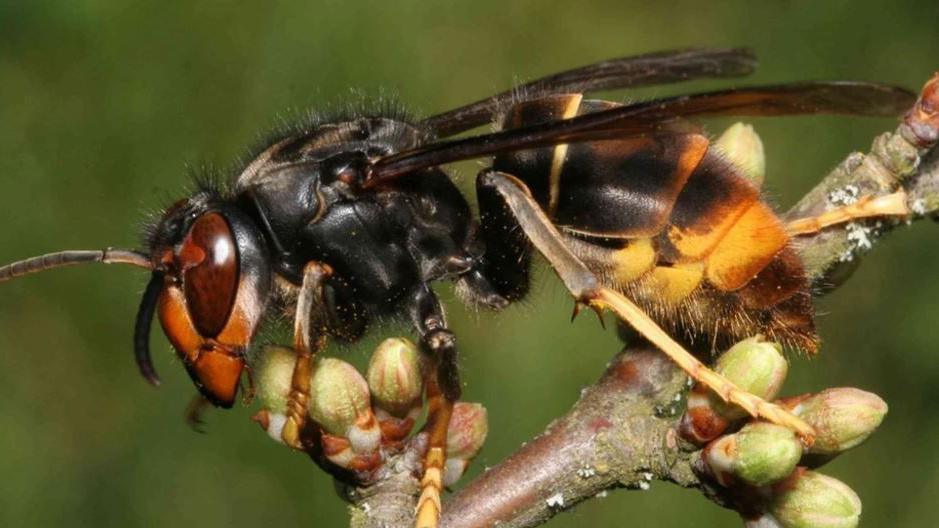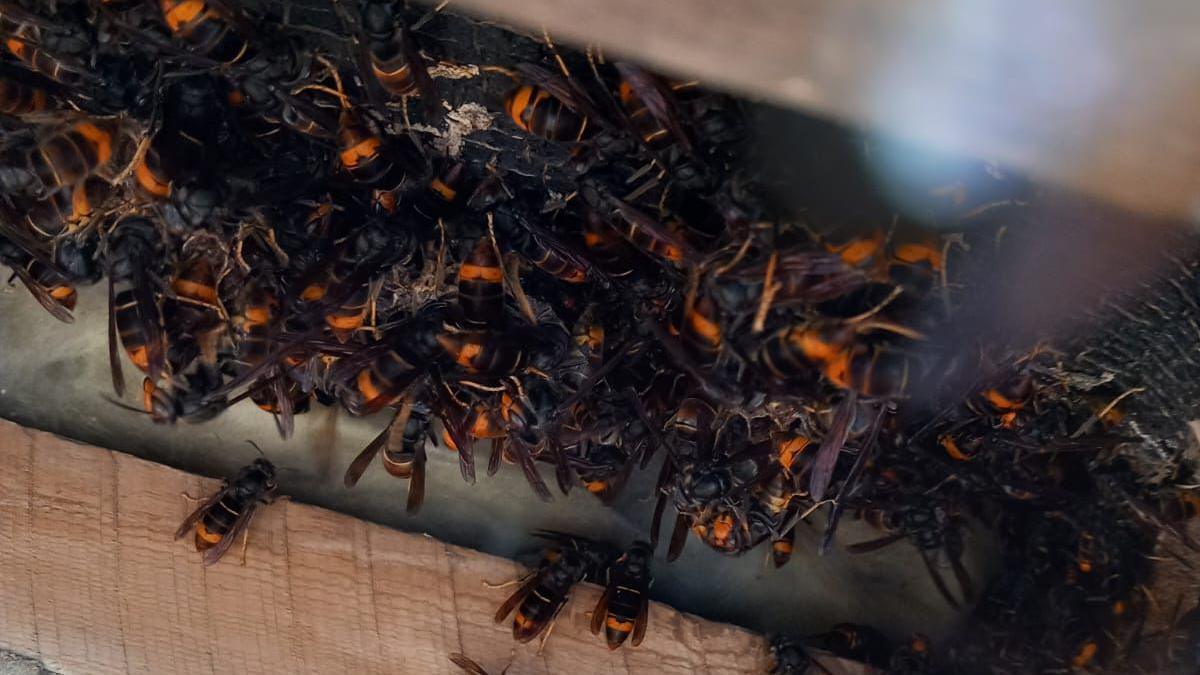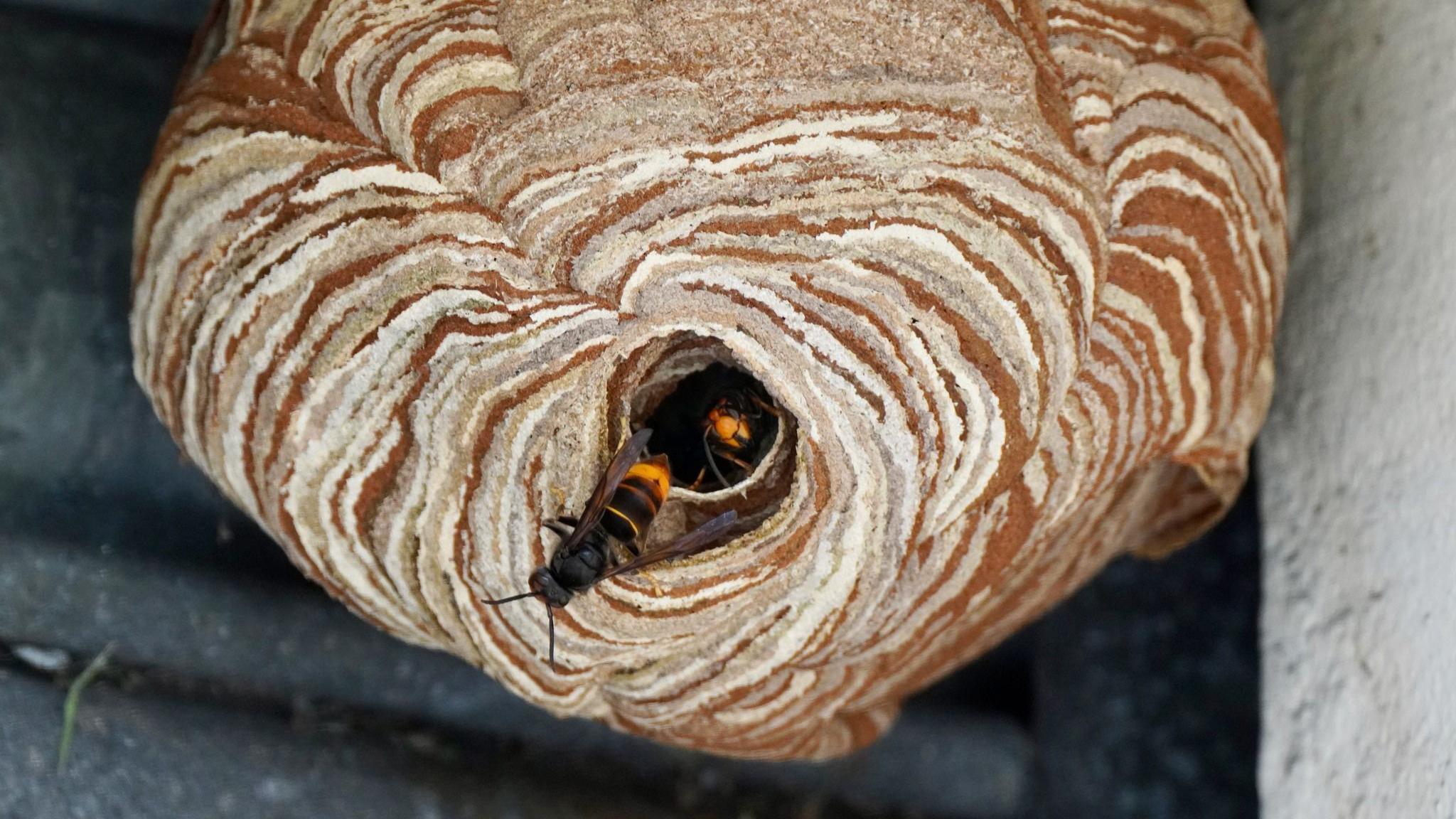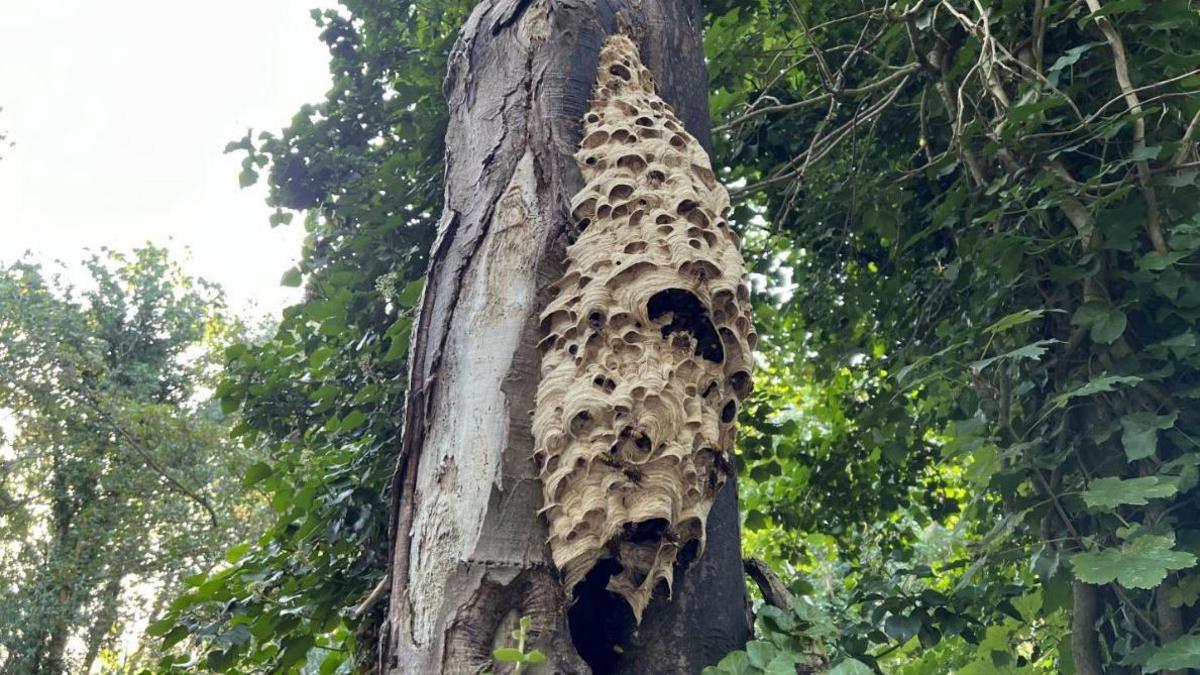Jersey 'essential' in stopping spread of hornets

The non-native Asian hornet was first seen in the UK in 2016
- Published
Researchers say Jersey is "essential" in helping stop the spread of Asian hornets in the UK.
Jersey was seen as an "ideal sandbox" to test systems that detect and eradicate nests, said Dr Thomas O'Shea-Wheller at the University of Exeter.
As a result, an EU-funded study, led by the UK Centre for Ecology and Hydrology (UKCEH) in partnership with the university, concluded the spread of the insect in the UK had so far been stopped.
Dr O'Shea-Wheller said: "Both the Government of Jersey and Jersey Asian Hornet Group were essential in allowing us to test our system with live hornets in the field."
He said: "I also believe that Jersey has provided substantial expertise and training to teams from the UK, thus supporting efforts to detect and eradicate nests.
"Jersey is something of an ideal sandbox, since they have plentiful Asian hornets, and a wealth of expertise relating to their tracking and control."
'Vigilant public'
The species is already well established in Jersey which has been known to kill 50 bees a day, according to the study.
The non-native Asian hornet was first seen in the UK in 2016 and there have been regular sightings ever since.
It included 44 records in 2024, largely in Kent and East Sussex.
Lead study author Dr Richard Hassall, of the UKCEH, said: "No significant spread has yet been reported in the UK while there has been recent establishments in Germany and the Netherlands."
"Our predictions suggest that the attempts to tackle the yellow-legged hornet [Asian hornet] in these countries [the UK] have so far been successful in limiting its spread.
"This is due to the fantastic efforts by vigilant members of the public who report suspected sightings of yellow-legged hornets, then rapid action by the authorities to locate and eradicate the insects and nests found."
'All nests removed'
The study found there were areas where the climate and habitat was highly suitable for the hornets in France, Spain, Portugal, Italy, Belgium, the Netherlands, Denmark, Germany, the UK and Ireland.
By December 2023, the hornet had established itself in France, Spain, Belgium, the Netherlands, Portugal, Italy, Switzerland, Germany and Jersey, experts said.
The study revealed that without action, by 2020, the Asian hornet could have been established across a minimum of 1,680 sq km (650 sq miles) of the UK.
By 2026 - a decade after the first UK sighting - the hornet could have been established in 44-66% of the country that had suitable climate and habitat for it, the study found.
Experts said although there had been individual sightings in the UK since 2016, there had been no spread across the country because all nests had been removed.
The study, which appeared in the British Ecological Society's Journal of Applied Ecology, external, suggested surveillance and rapid eradication attempts had helped limit the hornet's spread.
Follow BBC Jersey on X, external and Facebook, external. Send your story ideas to channel.islands@bbc.co.uk, external.
- Published4 October 2024

- Published28 October 2024

- Published17 September 2024

- Published5 November 2024
